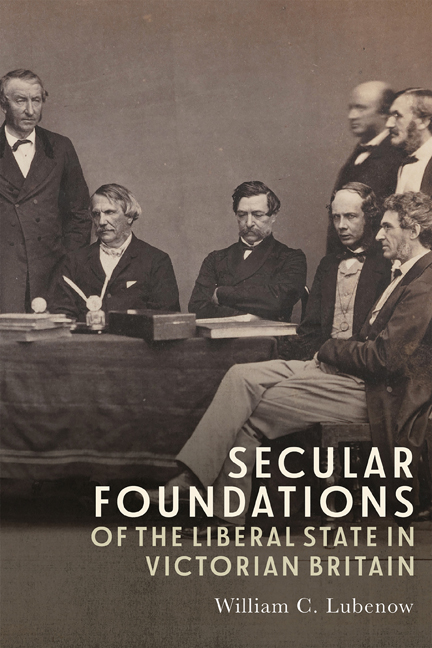Book contents
- Frontmatter
- Dedication
- Contents
- Preface
- Introduction: Methods, Materials, and Theses
- 1 From the Fiscal–Military–Confessional State to the Secular–Liberal State
- 2 From the Northcote–Trevelyan Report to the Order in Council of 1870
- 3 The Haldane Committee and the Creation of the Cabinet Office: Hankey to Hunt
- 4 “Fit and Proper Persons”: The Secular Clerisy
- 5 The Secular Clerisy’s Outillage Mental and Mandarin Solidarity
- 6 Regions of Doubt and Belief – Varieties of Secular Experience: Essays and Reviews, Ecce Homo, and the Gifford Lectures
- Conclusion and Epilogue
- Select Bibliography
- Index
Introduction: Methods, Materials, and Theses
Published online by Cambridge University Press: 09 May 2024
- Frontmatter
- Dedication
- Contents
- Preface
- Introduction: Methods, Materials, and Theses
- 1 From the Fiscal–Military–Confessional State to the Secular–Liberal State
- 2 From the Northcote–Trevelyan Report to the Order in Council of 1870
- 3 The Haldane Committee and the Creation of the Cabinet Office: Hankey to Hunt
- 4 “Fit and Proper Persons”: The Secular Clerisy
- 5 The Secular Clerisy’s Outillage Mental and Mandarin Solidarity
- 6 Regions of Doubt and Belief – Varieties of Secular Experience: Essays and Reviews, Ecce Homo, and the Gifford Lectures
- Conclusion and Epilogue
- Select Bibliography
- Index
Summary
In England the emergence of an extended intelligentsia has been a twentieth-century phenomenon. England, however, has not really had an alienated intelligentsia. The salient feature of the twentieth-century expansion has been not impotence or resentment, but a successful self-expression which has been achieved through parliament, the civil service, the law, the media, the citizen army, the professions, science, literature and the universities. It is this that has led the way, providing an entry into every part of the nation's life and turning the nation's mind into a subject for experiment – an atom to be bombarded with whatever charges seem suitable.
Maurice CowlingTHE Victorian mandarins formed and re-formed themselves in the spirit of Clapham Sect morality, thoughts on the government of India, the repeal of the Test Acts, Catholic emancipation, the removal of Jewish political disabilities, and the Northcote–Trevelyan Report. This book is about the interactions of ideas and institutions which shaped British civil life after 1815.Whatever is “modern” about “modern” Britain emerged from the rubble of the wars of the French Revolution. The rather standard account of the period following 1815 is one of growing stability, progress, and improvement into an age of equipoise. This story is enshrined in a Whig interpretation of history written by the likes of Thomas Babington Macaulay; a story of confidence and self-satisfaction. This is, however, to forget the period's rubble and disor¬ganization: Peterloo, Chartist disruptions, famine in Ireland, Continental revolutions in 1848, the emergence of another Napoleon, and mutiny in India. It was an age in which ruling elites, so far as they could rule at all, felt the anxieties of revolutionary terrorism. As Henry James said at the time he was writing The Princess Casamassima (1886), Britain “is gloomy and London reflects its gloom.” He noted the increase of terror: “Westminster Hall and the Tower were half blown up two days ago by Irish Dynamiters” and that there was a “general sense of rocks ahead.”
The nineteenth century was a “Victorious Century,” but, as its historian makes clear, its “victory” was deeply ironic and uncertain and there was nothing preordained or inevitable about its stability
- Type
- Chapter
- Information
- Publisher: Boydell & BrewerPrint publication year: 2024



